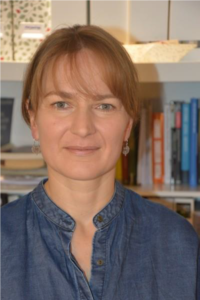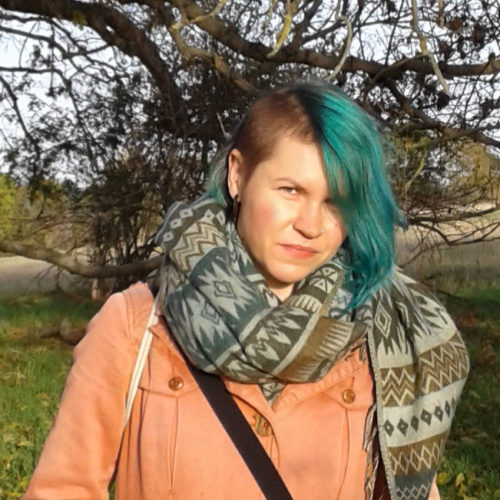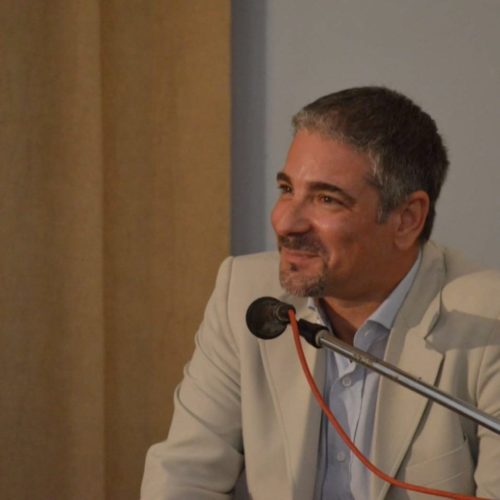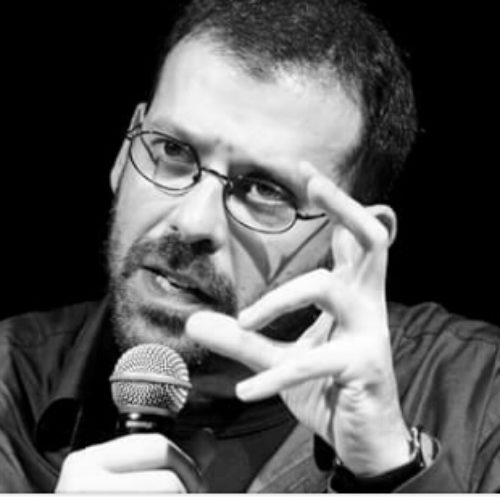Debate on the Refugee Crisis
Displacement, Racism and Protective Movements in the context of unequal North-South relations
December 19th, 2020

Human displacement in the Global South, caused by multiple crisis (e.g. wars over land and resources, natural disasters), is steadily and often invisibly threatening the balance of societies and the functioning of socio-cultural networks. This situation, according to Polanyi’s concept of embeddedness, is linked to the (dis-)integration of the economy in society. Many African states, characterized by national rent and power seeking elites, are nowadays the entry points through which multinational companies make their profits, access raw materials and cheap labour. Whilst this serves the Western economic growth model, we see massive increase of human displacements and conflicts in the Global South. Polanyi[1] argued it is not the economic exploitation, as often assumed, but the disintegration of the cultural environment of the victim of exploitation, that causes degradation. Fanon[2] further argued, when trying to end degradation, we must understand how culture affects the creation of hegemony and counter-hegemony, in which inequality and immense difference of ways of life never come to mask the human realities. If, as Polanyi and Fanon suggest, the ‚cultural‘ is so central to the victim and the cause of degradation, then the transformation of cultural hegemony, described by Gramsci[3] as the relation between culture and power under capitalism, becomes essential.
“European values lose their legitimacy in EU’s precarious refugee camps. These are places where the Global South meets and exists in the geographic North, in the form of excluded, silenced and marginalized refugees”
In the Global North, Right wing movements such as Pegida (Patriotic Europeans against the Islamization of the West), the Dritte Weg (Third Path) or the Identitäre Bewegung (Identitarian Movement) in Germany, have developed complex, disparate and overlapping structures[4]. They have gained strengths since the so-called “refugee crisis” through proclaiming a rather exclusionary cultural hegemonic project. In parallel, European values lose their legitimacy in EU’s precarious refugee camps. These are places where the Global South meets and exists in the geographic North, in the form of excluded, silenced and marginalized refugees (Santos 2016)[5]. Today‘s tension between the postnational articulation of European „Leitkultur“, both in terms of normative citizen‘s expectations, policies and institutional construction, and the post/neocolonial condition expressed in the exclusionary discourse of right wing movements, make Europe not only a fortress, but ironically a new colonial power in its own territory. The hierarchisation of citizenship in the EU, through different types of residence permits for migrants, and the broad political acceptance of human rights abuses against refugees at EU external border reception “hotspots”, reproduce a notion of divisive racial/cultural „otherness“, manifesting itself in the figure of the islamic, coloured or economic „migrant“.
“Linking the system of cultural sub-ordination to the colonially grown racial privilege of white supremacy helps to understand the increase in uprisings in African countries”
Hence, the linkages between postcolonial economic exploitation and displacement in many countries of the Global South and Human Rights abuses against refugees within the EU need to be discussed as an interwoven system of the enduring inhumanity of racist oppression. From here, we can make sense of the new African political-economic and cultural conflicts, produced and reproduced by neocolonial exploitation. Linking the system of cultural sub-ordination to the colonially grown racial privilege of white supremacy helps to understand the increase in uprisings in African countries; in a Polanyian sense, these uprisings could be seen as movements seeking protection from the destructive forces of the global self-regulating market in the context of unequal exchange between countries of the Global South and the Global North.
[1] Polanyi, K. (1979): The Great Transformation: The Political and Economic Origins of our Time. 2nd edition, Beacon Press.
[2] Fanon, F. (1967): The Wretched of the Earth. Farrington, C. (trans.), Harmondworth: Penguin Books.
[3] Gramsci, A. (1971): Selections from the Prison Notebooks. Hoare, Q. And Smith, G. N. (eds.) International Publishers Co.
[4] Deusche Welle (2017): A guide to Germany’s far-right groups. Available from: https://www.dw.com/en/a-guide-to-germanys-far-right-groups/a-39124629 (06.12.2020)
[5] Santos, B. d. S. (2016): Epistemologies of the South and the future. From the European South. 1, 17-29
Tanja Kleibl
Tanja Kleibl is Professor of Social Work, Migration and Diversity at the University of Applied Sciences Würzburg-Schweinfurt (FHWS). Her research interest is in the area of political sociology, in particular postcolonial civil society, social movements, mobility and international development. She has worked for various NGOs and government agencies in Africa and beyond. She brings together 15 years of extensive practice and research experiences in development cooperation and migration.
Read our other essays on the Refugee Crisis here:




